 W
WLieutenant General Sir Terence Sydney Airey was an officer in the British Army.
 W
WCaptain Richard Wallace Annand VC, ERD, DL was an English recipient of the Victoria Cross, the highest and most prestigious award for gallantry in the face of the enemy that can be awarded to British and Commonwealth forces. This was the first VC awarded to a member of the British Army in the Second World War.
 W
WBrigadier General Roland Boys Bradford, VC, MC was a British Army officer and an English recipient of the Victoria Cross, the highest award for gallantry in the face of the enemy that can be awarded to British and Commonwealth forces. His elder brother, Lieutenant Commander George Bradford, was also awarded the Victoria Cross, making them the only pair of brothers to be awarded the medal during the First World War.
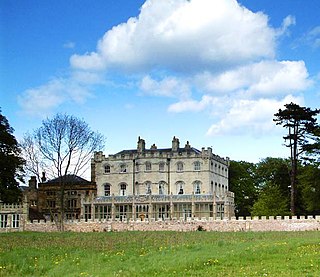 W
WColonel Rowland Burdon, VD, DL, JP was an English landowner and Conservative Party politician from County Durham. He sat in the House of Commons from 1918 to 1922.
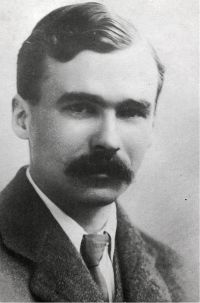 W
WGeorge Sainton Kaye Butterworth, MC was an English composer who was best known for the orchestral idyll The Banks of Green Willow and his song settings of A. E. Housman's poems from A Shropshire Lad.
 W
WReginald Henry Callender was an English amateur footballer who played in the Football League for Derby County and Glossop as an outside left. He represented the England amateur national team.
 W
WJames Casey, known professionally as Jim Casey, was at various times during his long career a Variety comedian on the English music-halls, a scriptwriter for BBC Radio's variety shows and situation comedies, and a senior BBC Radio Light Entertainment producer.
 W
WGeneral Sir Henry de Beauvoir De Lisle, known as Beauvoir De Lisle, was a British Army officer and sportsman. He served in both the Second Boer War and the First World War.
 W
WWinston Joseph Field was a Rhodesian politician who served as the seventh Prime Minister of Southern Rhodesia. Field was a former Dominion Party MP who founded the Rhodesian Front political party with Ian Smith.
 W
W(Alfred) Morris Gelsthorpe, DSO, DD was an English Anglican priest and missionary. Known popularly as 'Gelly', he was the first Bishop in the Sudan.
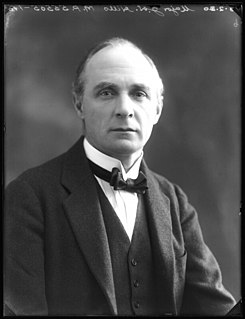 W
WMajor John Waller Hills PC was a British Liberal Unionist and Conservative politician.
 W
WWilliam Morgan Fletcher-Vane, 1st Baron Inglewood, TD, was a British Conservative Party politician.
 W
WArthur Moore Lascelles VC MC was an English recipient of the Victoria Cross, the highest and most prestigious award for gallantry in the face of the enemy that can be awarded to British and Commonwealth forces. He was educated at Uppingham School and attended the University of Edinburgh but abandoned his medical studies in 1902 and emigrated to South Africa.
 W
WPercy Hugh Beverley Lyon MC (1893–1986) was a 20th-century British poet and educator, a winner of the Newdigate Prize and headmaster of Rugby School from 1931 to 1948.
 W
WGeneral Sir Herbert John Mogg, was a senior British Army officer who also held the NATO position of Deputy Supreme Allied Commander Europe (DSACEUR) and was "in his time, probably the British army's most popular general".
 W
WAir Marshal Sir Lawrence Arthur Pattinson, was a Royal Air Force officer who became Air Officer Commanding-in-Chief of Flying Training Command from 1940 to 1941.
 W
WLeslie Samuel Phillips is an English actor. He achieved prominence in the 1950s, often playing smooth, upper-class comic roles utilising his "Ding Dong" and "He-llo" catchphrases. He appeared in the Carry On and Doctor in the House film series as well as the long-running BBC radio comedy series The Navy Lark. In his later career, Phillips took on dramatic roles including providing the voice for the Sorting Hat in the Harry Potter films.
 W
WGeneral Sir Joseph Howard Nigel Poett, was a British Army officer who commanded the 5th Parachute Brigade during the Second World War.
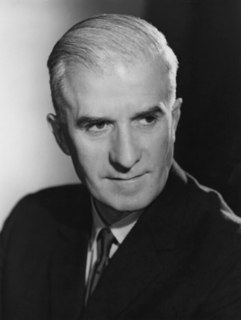 W
WEdward Watson Short, Baron Glenamara,, often known as Ted Short, was a British Labour politician and deputy leader of the Labour Party. He was Member of Parliament (MP) for Newcastle upon Tyne Central and served as a minister during the Labour governments under Harold Wilson, before being appointed to the House of Lords shortly after James Callaghan became Prime Minister.
 W
WMajor General George William Symes, was a senior British Army officer who served in the First World War, in which he was twice awarded the Military Cross. During the Second World War he commanded the 70th Infantry Division in India, and was deputy commander of the Special Force, commonly known as the Chindits, in Burma. He was deputy commander of the lines of communication of the 21st Army Group from May to November 1944, and then commanded the lines of communication in South East Asia Command (SEAC). In June 1945, he became general officer commanding (GOC) in Southern Burma.
 W
WLieutenant-Colonel Ernest Vaux, was a business man from County Durham and a distinguished officer in the Volunteer Force and Territorial Force during the Second Boer War and World War I.
 W
WSir Godfrey Russell Vick QC was an English lawyer, judge and Liberal Party politician.
 W
WMajor General Philip Sidney Whitcombe was an English cricketer active from 1922 to 1931 who played for Essex and in India. He was born in Windsor, Berkshire, and died in Hindhead, Surrey. He appeared in four first-class matches as a righthanded batsman who bowled right arm fast medium pace. He scored 81 runs with a highest score of 32* and took no wickets.
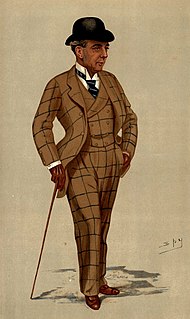 W
WThomas Anthony Hwfa Williams (1849/50–1926) was a British Army officer and racecourse manager. A figure of the Marlborough House Set, he was a close associate of the future Edward VII of the United Kingdom, and his wife Mrs. Hwfa Williams a leader of the fashionable world.
 W
WFrederick Youens VC was an English recipient of the Victoria Cross, the highest and most prestigious award for gallantry in the face of the enemy that can be awarded to British and Commonwealth forces.